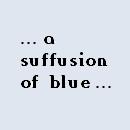...
Traditionally on NT systems the SCSI driver for an actual SCSI card was copied "verbatim" in the Root directory of the boot drive (together with NTLDR, NTDETECT.COM and BOOT.INI) and renamed to "NTBOOTDD.SYS".
If the BOOT.INI has INSTEAD of the nowadays common "multi(0)" entries a "scsi(0)" entry, it will use the NTBOOTDD.SYS to "hook" the SCSI drive(s) at boot time.
...
Wonko
...
So there are potentially multiple uses:
In the problem that Vortex reported whereby Windows Server 2003 was working with neither Firadisk nor WinVBlock, it turned out that GRUB4DOS doesn't protect its INTerrupt 0x13 hook, so it gets obliterated at random by Windows processes during boot, depending on whether its memory happens to be overwritten or not. Without the INT 0x13 hook, the two aforementioned drivers cannot find the GRUB4DOS virtual disks without some new mechanism. Every time a new mechanism is introduced, things will get uglier, in my opinion. Some future version of this NTBOOTDD.SYS could find MEMDISK and GRUB4DOS parameters very early and then pass them on.
Additionally, NTBOOTDD.SYS has access to disks using INT 0x13, so it can scan disks and pass on information concerning which BIOS drive numbers (pre-kernel) correspond to which Windows disks (post-kernel). We want to know this so that we know which backing disks that G4D sector-mapped disks map to.
Another goal for a future version of this NTBOOTDD.SYS would be Microsoft .VHD support for all three VHD types: Fixed, dynamically expanding, differencing. There are still tons of XP computers out there in the world, and it might be nice to boot them from VHDs.
- Base image VHD
- Model-specific VHD difference from 1 (drivers, devices, kernel and HAL choice)
- Computer-specific VHD difference from 2 (this computer's MAC addresses, computer name, Active Directory account, AD Group Policies)
- Session-specific VHD difference from 3 (re-generated at every boot, thus discarding viruses, user profiles, cached AD credentials)



















